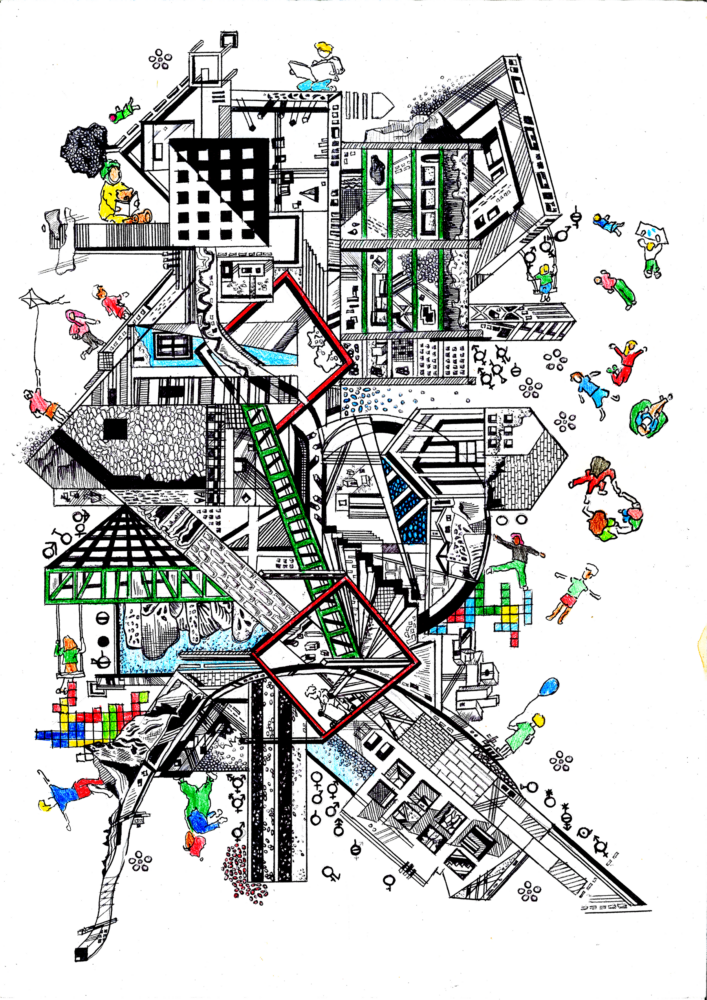It’s 2034. Young people choosing their high school subjects or applying for places in higher education do so with every intention of pursuing their passions, instead of what they think they *should* be doing. Our beloved community theatres are thriving once again, having reopened their doors to welcome back the hundreds and thousands who supported them across their many adventures – right through and beyond those they never wished to go on.
It’s 2034, and every child who expresses interest in exploring their creativity receives all the nurturing, encouragement, and tools they need to thrive, instead of being told to spend their time and energy elsewhere. ‘People like me don’t get to do that’ is a phrase of the past, and more folks than ever before are reaching out with a helping hand, rather than reaching back to pull the ladder up behind them.
It's 2034, and we continue to break down barriers in all their forms, defiantly declaring that ‘Yes: this IS for me, I DO belong here, and I CAN do this’. People from all walks of life see themselves in TV dramas, on stages, in films, in games, in artworks, and in the words of authors, poets and songwriters.
It’s 2034, and I am working in my dream job. The ‘imposter syndrome’ becomes an opportunity to remind myself of how far I’ve come, of how hard I’ve worked, and that I deserve to be here too.
Consider for a moment how mighty it would be, if we each took a step (and then another, and another...) towards ensuring the thriving future of the creative industries for all.
It is nothing new to declare the importance and the power of the arts, in all their forms. Unfortunately, it is also nothing new to have to draw attention to the disproportionate axing of budgets or the lack of prioritisation for development of the creative industries by comparison, and the significant effect this in turn has, not just for us as a whole society, but especially for those from marginalised and low socio-economic backgrounds for whom such funding is a crucial access issue. This, however, is also where we witness the magic of people doing what people do best: coming together in solidarity, with a shared vision and passion, to make their voices heard.
Where there are cuts or gaps in funding, we will fundraise. Where there’s a lack of representation and access, we call it out and elevate others, campaigning for change. When there’s no platform, we build one. When we’re not being heard, we shout even louder. We write letters. We sign petitions. We donate. We show up. We vote. We march. We pay it forward. We create art to create change and then encourage others to do the same. We continue with purpose, even when we don’t achieve the result we were after. Because sometimes, when we persevere, we make history.
Ten years may seem like a long time in the future, but my hope is that by the time it does come around and is our ‘now’, many of the pressing issues in the creative industries today have become lessons learned
The time to think about the impact that the creative industries has on ourselves, our communities and our young people is now. Ten years may seem like a long time in the future, but my hope is that by the time it does come around and is our ‘now’, many of the pressing issues in the creative industries today have become lessons learned, and their morals remembered. My hope is that none of us will have to fight so hard to achieve what should already be commonplace, but it will have been worth every second, and that our hard work is not forgotten. There will be new reasons to gather, and my hope is that they are instead in celebration of all that we've achieved.
It is not radical to say that the creative industries are, and would continue to be, all the poorer for a lack of diverse voices. We are all worse off for not hearing the stories of others who experience life differently to ourselves. No young person should ever have to miss out on an opportunity to tell their story because of their circumstances, and no one should ever feel like the joy of creating - or of taking in the arts - is not for them. For anybody who has ever been touched by the creative industries in some way (so really, that makes it all of us) - it should be within our collective interest to work towards the common goal of ensuring a rich future for the creative industries that everyone can contribute to.
By 2034, I hope to have the opportunity and circumstances to pay forward even a fraction of the time and support I have received from Arts Emergency in my years with them as a mentee and Young Community member. Support I received, no doubt, because a group of people ten years earlier decided that people like us should be given that opportunity and worked tirelessly to make it happen, with the help of others who shared a vision.
In 2034, perhaps I will look back, and these sentiments will evoke a similar sense of wholesome naivety as when I imagined my 'in ten years' time' as a kid, and the future contained flying cars. But I do know that hope is powerful, and that maybe, if we allow ourselves to hope for this better future and to keep pushing forward with that power, we might just look back on now and be able to say, 'I'm so glad we kept up the fight.'
- Millie-Jo MacIver
